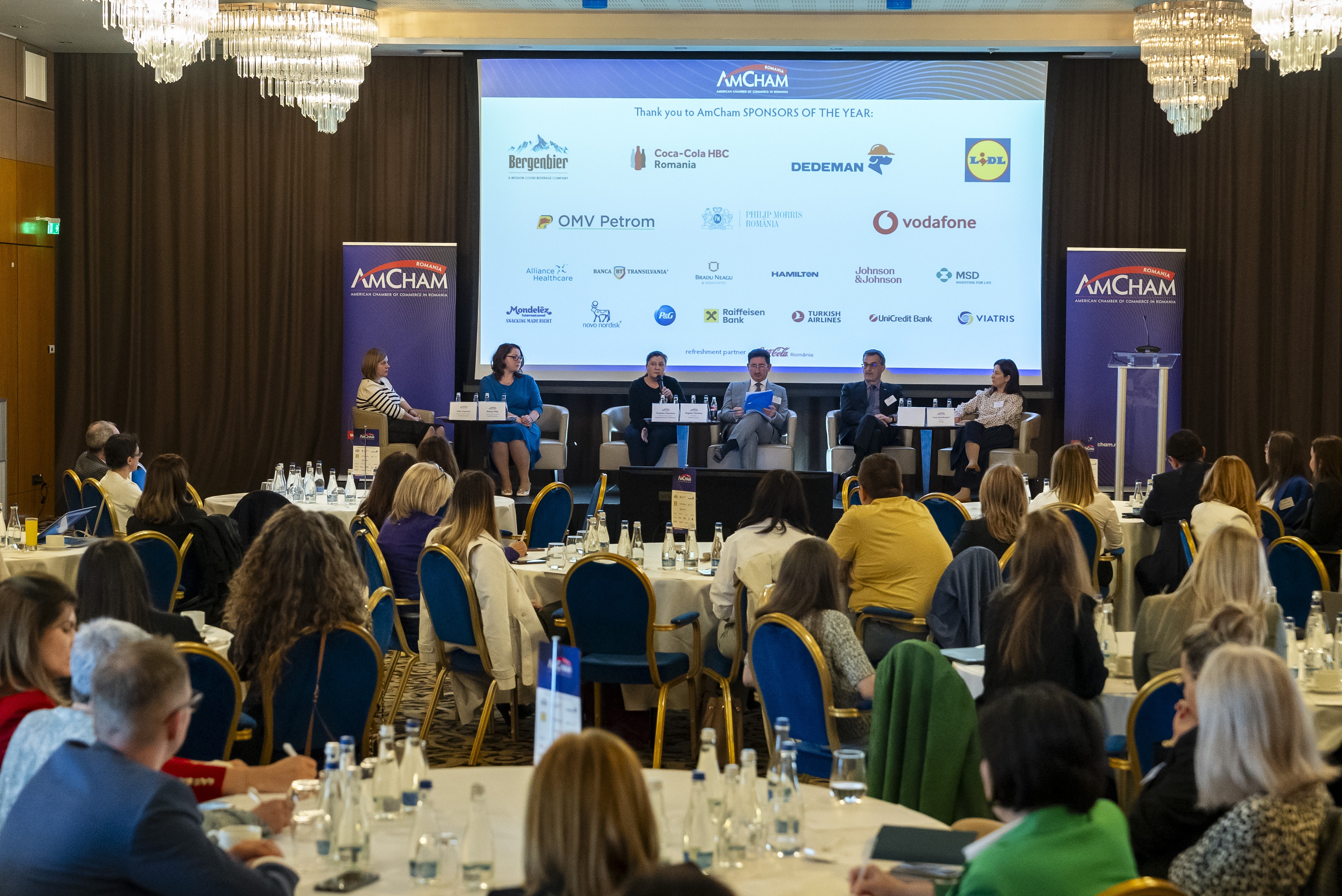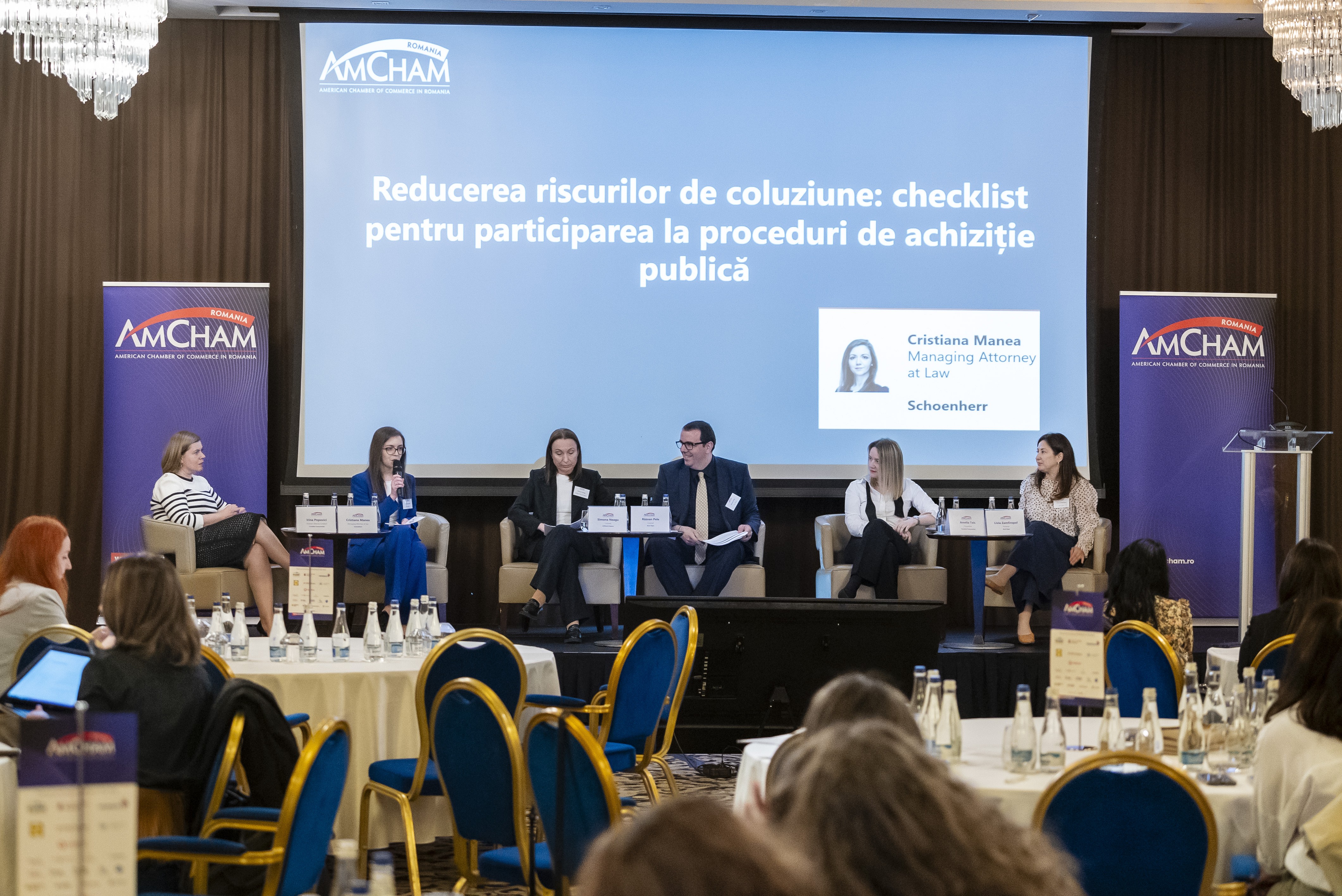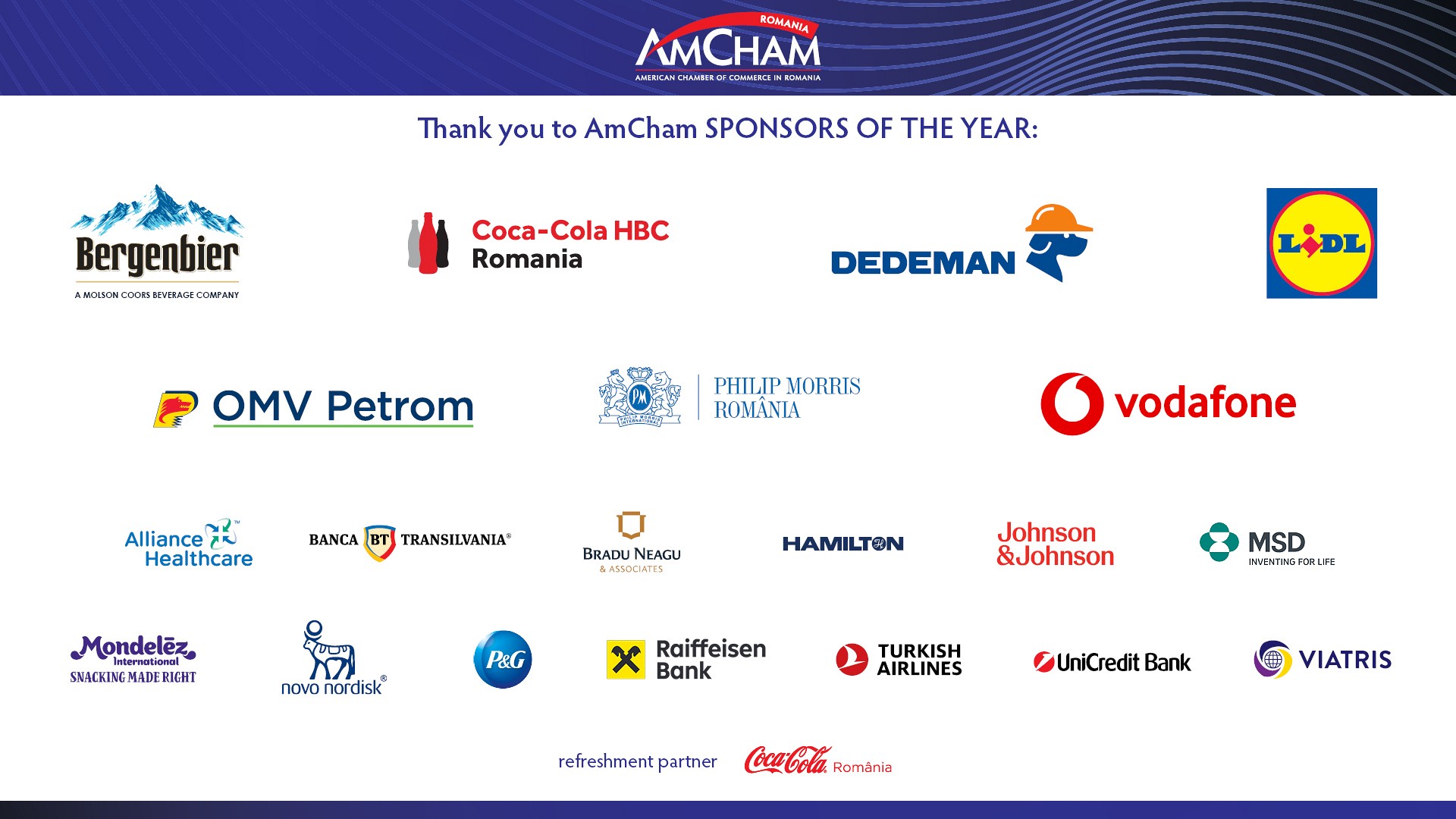Important Information
This website uses cookies. By using this website you accept the use of cookies. Learn more.

The American Chamber of Commerce in Romania (AmCham Romania), in partnership with the Romanian Competition Council, organized the 7th edition of the conference "Competition in Public Procurement: Competion Risks and Practical Remedies", part of a series of initiatives through which AmCham Romania supports an open and constructive dialogue between decision-makers and the business environment.
Professionals from the AmCham community and representatives of regulatory and supervisory authorities in the field of public procurement and competition - the National Authority for Public Procurement (ANAP) and the National Council for Solving Complaints (CNSC) - discussed the need to improve the quality of the regulatory framework and increase compliance levels in the market.

Opening the conference, Gabriela Popescu, Corporate, External and Legal Affairs Lead, Central Europe, Microsoft | President of the AmCham Committee dedicated to Competition & State Aid, appreciated the collaboration with the Competition Council and the National Agency for Public Procurement (ANAP) and the continuity of this initiative, which has become a model of efficient public-private dialogue. "Over the years, we have developed a transparent and solution-oriented collaboration, contributing to the creation of a healthy competitive environment in Romania, bringing significant benefits to our society and economy."
Competition Council President, Bogdan Chirițoiu, emphasized the need for a more comprehensive approach to public procurement procedures that would increase both their benefits and their competitive nature. "There is reluctance in the public administration to carry out public procurements that take into account a complexity of factors, and many tend to opt for the simplest option, which often boils down to price. It is important to realize that choosing the lowest price is not always the most beneficial or competitive. Thus, it is essential to analyze other factors such as the impact on the local economy."
From the perspective of the Competition Council, whose responsibilities require a prompt response to competition-related issues, President Chirițoiu drew attention to the risks associated with anti-competitive practices, especially the formation of cartels: "Although consortia themselves are not illegal, they can conceal illicit activities such as price fixing or market sharing among participants, practices that are considered serious violations of competition rules."
Andreea Vlăsceanu, Deputy General Director, National Agency for Public Procurement, spoke about the confidentiality aspect within the public procurement process, analyzing the information flow from both perspectives, as established by law. "An important aspect is that the information from the financial offer cannot be considered entirely confidential, being susceptible to confidentiality only if it falls within the scope of personal data, technical or commercial secrets, or is protected by intellectual property rights," pointed out Deputy Director Vlăsceanu.
Silviu Popa, Public Procurement Dispute Resolution Advisor, National Council for Solving Complaints, noted that, unfortunately, according to the special report of the European Court of Auditors in 2023, there are data indicating that the European Directives adopted in 2014 may not have had the expected impact regarding stimulating competition in public procurement processes. "The 2014 Directive resulted from intense debates at the European level, in a context where discussions on topics such as the green deal and digitization dominate the European agenda. However, in Romania, considerable importance is still attached exclusively to the criterion of proximity," emphasized the CNSC representative, who also appreciated the discussion within the conference as highly synchronized with the initiative and determination of the European Commission to update the legislation in the field of public procurement, following the special report of the European Court of Auditors in 2023, which showed that the level of competition for the award of public procurement contracts for works, goods, and services seems to have decreased over the past 10 years in the EU single market.
Raluca Filip, Competition Inspector, within the Cartels Directorate - Competition Council, concluded the panel dedicated to representatives of authorities with an intervention on the risk that associations between economic operators may become susceptible to violating competition rules: "When competing undertakings choose to associate instead of submitting individual bids, the restriction of competition caused by this association must be compensated by the efficiency of the bids submitted. This means that the association should bring a benefit to the contracting entity in the form of a lower price or higher quality of the works performed."
During the Q&A session, participants were particularly interested in discussing the decision of the European Commission dated April 24, 2024, to initiate an infringement procedure by sending a letter of formal notice to Romania for non-compliance with legislation on public procurement.
In the second part of the conference, experts from the AmCham committee addressed practical aspects related to compliance with the competition framework in public procurement.

Cristiana Manea, Managing Attorney at law, Schoenherr, emphasized the importance of implementing a rigorous checklist for participants in public procurement to combat collusion. "This involves carefully monitoring alarm signals, such as the frequency of winning or losing contracts and constant bids with abnormally high or low prices for the same goods or services." The recommendations presented included increased attention to the choice of consultants and detailed internal documentation of the price analysis offered to avoid suspicions of collusion. Contracting authorities must be vigilant in detecting and preventing collusive practices, and participants must strictly adhere to imposed rules, ensuring a fair and transparent competitive environment.
Simona Neagu, Counsel, Clifford Chance Badea, discussed information flows in public procurement and the impact of competition rules on their dissemination in tenders, from the preparation of offers to contract award. She emphasized the objective of public procurement procedures, namely to ensure healthy competition in all Member States and to avoid disclosing information that could distort competition in the award process.
Răzvan Pele, Counsel, DLA Piper, referred to market consultation as a mechanism for increasing the efficiency of public procurement procedures, highlighting the main responsibilities of the contracting authority, including compliance with rules in public procurement legislation and competition law in organizing consultations. He also drew attention to risks such as possible lack of technical expertise required for the preparation of complex projects and the method of organizing the public consultation procedure.
Amelia Teis, Partner, Legal Design, presented the advantages and risks of market consultation procedures, as well as the objectives that contracting authorities engaged in such initiatives should pursue. "The prior participation of the bidder in the preparation of a procedure involves benefits (specific expertise, innovative solutions, optimization), but also risks (information advantage, conflict of interest, impartiality). It is the responsibility of contracting authorities to ensure that there is no distortion of competition by applying preventive and mitigation measures such as conducting extensive consultations, full transparency, or independent monitoring."
The conference was moderated on behalf of AmCham Romania by Livia Zamfiropol, Partner, DLA Piper, and on behalf of the Competition Council, by the Director of the Cartels Directorate, Irina Elena Popovici.
The 7th edition of the AmCham Romania conference "Competition in Public Procurement: Competition Risks and Practical Remedies" once again confirmed the need for open dialogue between the business environment and regulatory institutions to support sustainable economic growth.
***
